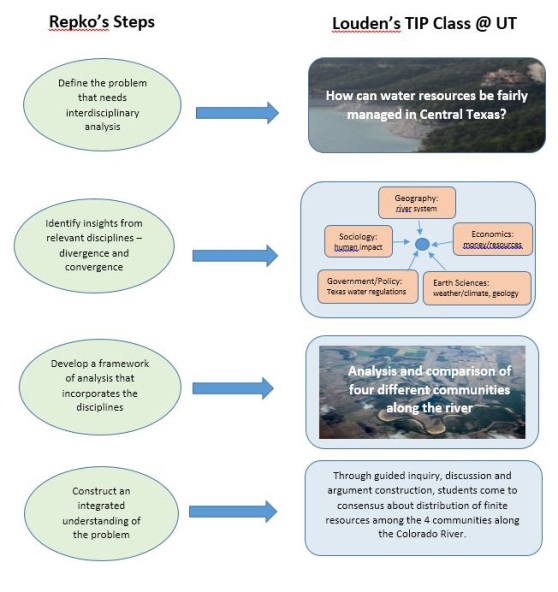A discussion led by Eric Hersh (Environmental Science Institute & Jackson School of Geosciences) with Katie Pritchett (Longhorn Center for Civic Engagement, Division of Diversity & Community Engagement) for the Sustainability FLC on September 19, 2013.
Core thought: We (try to) teach students how to think. Can we teach them how to care?
Civic engagement, the individual and collective action to identify and address public issues, and to participate in public life, is a tenet of sustainable living. Active citizens (1) are aware, (2) participate, and/or (3) lead their communities on issues of importance.
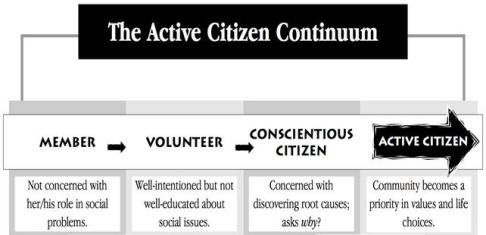
(http://volunteer.colorado.edu/service-philosophy/active-citizenship)
The skills necessary to be an active citizen, and thus those to be cultivated in the classroom, include:
- critical thinking regarding civic issues,
- effective communication, engagement, and collaboration with diverse individuals and communities (including listening skills),
- an understanding of your own values and motivations, and
- a recognition of one’s responsibility to the community.
Is it believed that these skills can be learned and taught (http://activecitizen.tufts.edu/about/).
In general, American youth have higher rates of apathy and lower rates of civic engagement than the general populace:
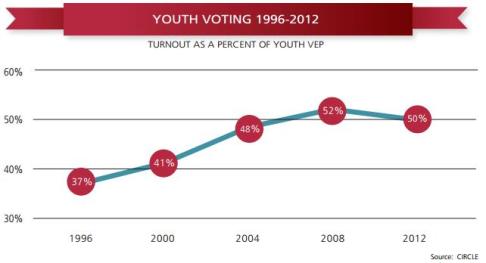
(http://www.nonprofitvote.org/doc_download/504-america-goes-to-the-polls-2012)
And Texas doesn’t fare too well in a national ranking of voter turnout:
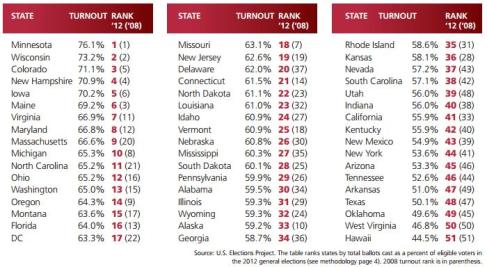
(http://www.nonprofitvote.org/doc_download/504-america-goes-to-the-polls-2012)
Further, environmental impacts and sustainability tend to be lower priority issues among voters:
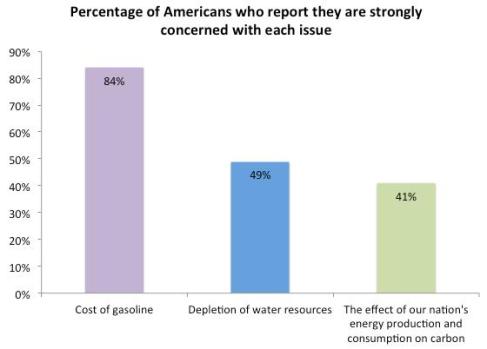
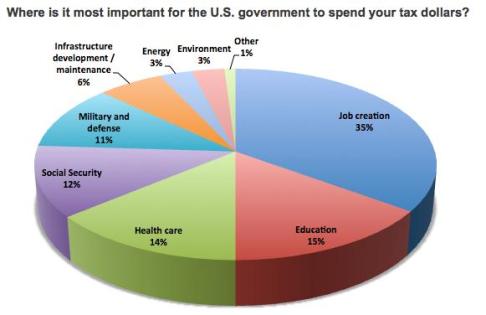
(http://www.utenergypoll.com)
But there is some indication that students at UT-Austin feel differently. For example, 71% of the student body voted to charge themselves a “green fee” in March 2010 to fund sustainability initiatives on the campus (http://www.utexas.edu/sustainability/greenfee.php).
A brainstorm of ideas, some currently underway and some proposed, to promote and enhance active citizenship on the UT-Austin campus:
- Greek system sustainability officers
- Field/community interaction
- Office of Sustainability awareness/recognition
- Green Fee signage/projects
- DHFS – local food/meatless Mondays, etc
- Current events discussion/ analysis
- Service-based orientations/ Rec Sports service trips
- Maymesters
- Developing countries engineering/EWB
- Understanding diverse (and differing) perspectives
- Listening skills
- Starting from the viewpoint of people (not things).
Your thoughts?
Eric Hersh, ehersh@esi.utexas.edu
Full presentation available here: Sustainability FLC – Active Citizenship (Hersh, Sept 19, 2013)

http://ddce.utexas.edu/civicengagement/
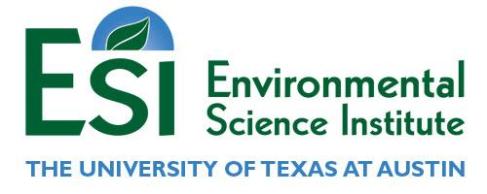
http://www.esi.utexas.edu/
Please join us for our next Sustainability FLC on Thursday, October 31st from 12 PM – 1:30 PM in UNB 4.110.
Kate Catterall, Associate Professor of Art and Art History and Dr. Allan Shearer, Associate Professor of Architecture will discuss the concept of ‘Anticipatory Thinking’ as it relates to sustainability teaching and learning.
